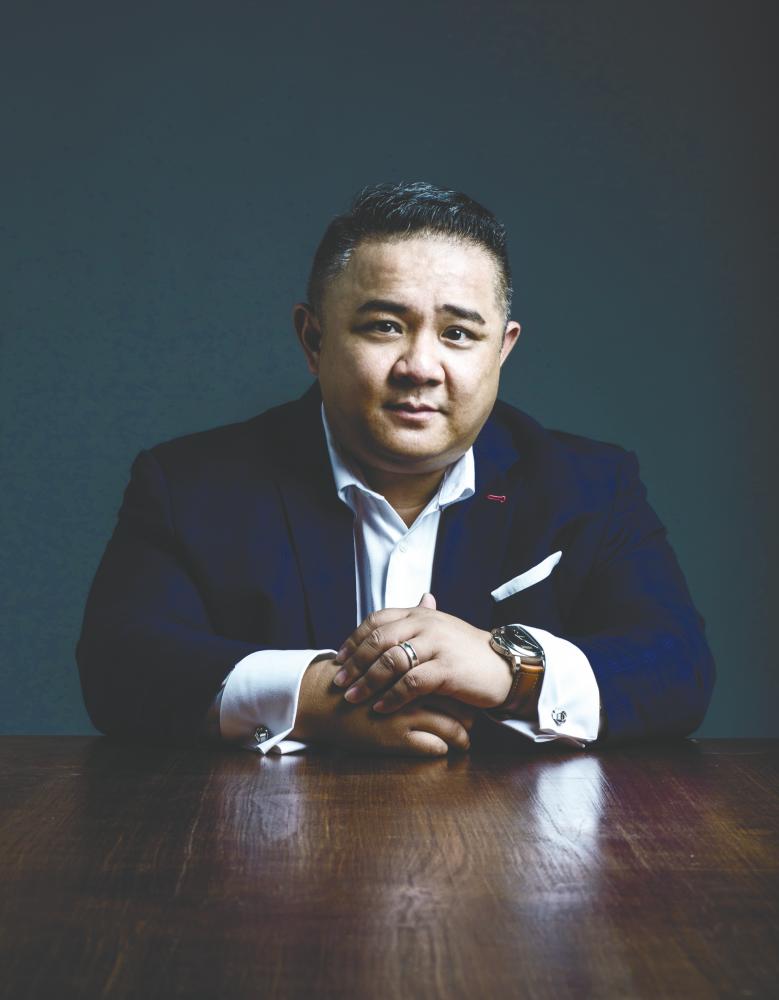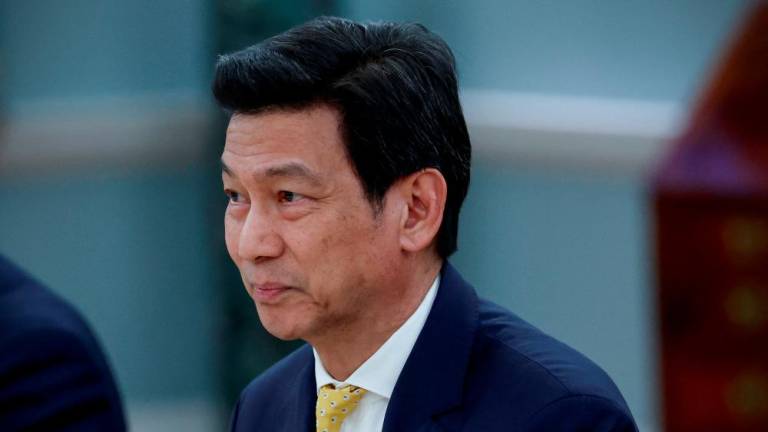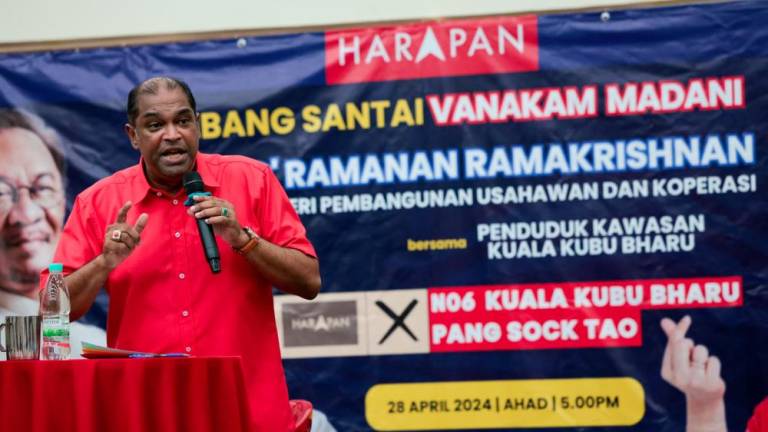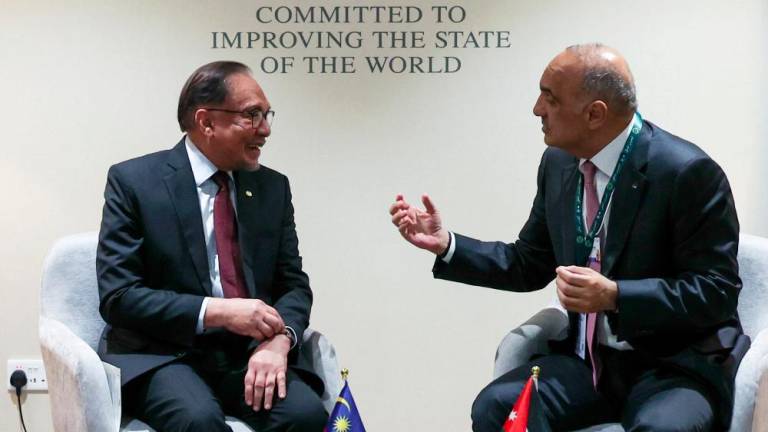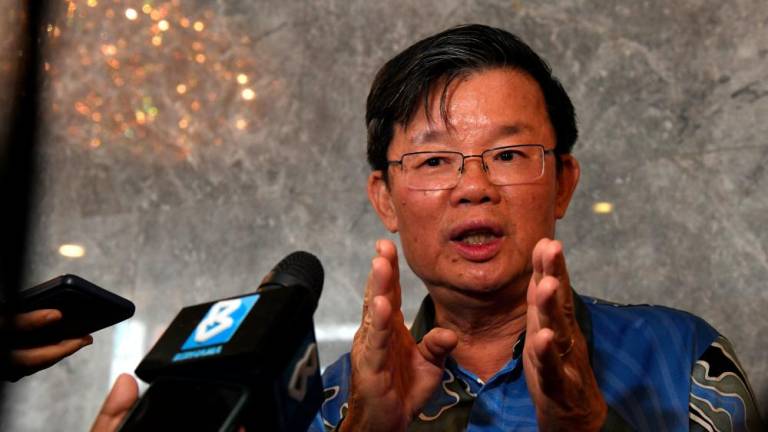PETALING JAYA: Gym franchise Anytime Fitness Asia (AFA), the regional master franchisee of the Anytime Fitness brand, is aiming to establish 100 gyms in Malaysia in three to four years, from 29 gyms currently.
AFA CEO Rey Bolivar (pix) said Malaysia is its third largest market, after the Philippines (135 gyms) and Singapore (65 gyms).
“Singapore at 65 gyms is nearing its maturity, as Singapore is geographically small. Within the next couple of years, we believe Malaysia will overtake Singapore and become our second largest market,“ he told SunBiz in an interview.
AFA is present in eight markets, including Malaysia, the Philippines, Singapore, Thailand, Taiwan, Hong Kong, Macau and Indonesia with more than 200,000 members. It is developing its ninth market, Vietnam, and will open its first gym there in October.
In Malaysia, it has more than 16,000 members, with 10 more gyms in development. Bolivar said it wants to deepen its Johor footprint as it has not developed the market there to its opportunity, having only three gyms in the state.
“Currently a lot of our gyms are within the KL central business district area. We believe growth particularly in community markets is an opportunity and we see there is a good synergy with developing Johor. We believe a combination of Malaysian/Singaporean franchisees can develop that market.”
Bolivar, who is based in Manila, said its small-size gym format allows AFA to go into markets that other operators with big layouts cannot, and allows owners to engage with members to achieve their fitness goals.
“We can go literally anywhere. That 300-450 sq m size gives us the luxury of being able to go into high rises, malls and single-unit constructs.
“A lot of time if you don’t engage these members and make sure they are up on their routines, they don’t hit their goals and they tend not to continue their memberships. That’s why you see this unending cycle of people joining the gym and quitting the gym. We want to stop that cycle. We want to make sure we know our members and get them to their goals.”
Bolivar said the Malaysian market has an appetite for health and fitness, judging by the players in the fitness industry.
“Malaysia has a low penetration for fitness and there is enough people to join as members. We don’t have to ‘fight’ for those members. My goal is to get those who are not working out or not active to join.”
However, lowering gym fees is not on the cards for AFA, which wants to maintain its value proposition, as well as the community, convenience and friendly staff premises.
“Once you start getting into a price war, once an operator drops price, everyone else drops their price. Doesn’t do anything for any one and it impacts your ability to deliver a quality product. Instead of price, we look at our price proposition. We’ve always been known for value for money. We charge a price that is comfortably affordable for most people. It allows us to make sure we have properly trained staff, equipment and programmes for members.”
Having reopened its gyms after the lockdown in multiple markets, Bolivar said consumer sentiment has been strong.
“Most markets upon opening went back to pre-Covid-19 usage numbers. The amount of termination was minimal. If anything, people froze or suspended their memberships but majority of members were rushing to come back to the gym,“ said Bolivar.
In this “new normal”, he said, AFA must be prepared to operate not only in the brick-and-mortar model, as should there be another lockdown, it needs to continue to service members outside the gym.
“We have to redefine what ‘gym’ is. We have digital platforms, we have the Anytime Fitness app rolled out before the virus. We’re developing further apps and remote digital coaching platforms that members can use in or outside the gym. The ‘new normal’ is almost like a hybrid model – in and out of the gym.”
It also intends to keep its 24 hours concept, a hallmark of the AFA brand.
“There’s a much smaller use during odd hours but it allows us to pool our convenience model. It’s one of our tenets of convenience. As long as you can make time, we have the facilities for you, and we’re always open for you. Not many people will use it but should you need or have the opportunity to want to work out, we’re there for you.”
In June, AFA was acquired by Inspire Brands Asia, a consortium led by its top submaster franchisees, lead investor Exacta Capital Partners, and co-investor Aura Group. The acquisition includes the master franchisee licence in Singapore, Malaysia, the Philippines, Indonesia, Thailand, Taiwan, Vietnam, Hong Kong, and Macau. Members of the consortium merged their gym management businesses into the group, which operate over 30% of the brand’s footprint in Asia.
“The due diligence and majority of the work were done prior to Covid-19. We were waiting for final details to come in and the pandemic hit. Markets began to lock down and we were in the midst of closing the deal,” explained Bolivar.
Amid the pandemic which saw the closure of some fitness centres, the deal was a cause for concern. “After doing additional due diligence, additional valuations and financial reviews, reviewing the leadership and track record of the company, it pushed through,” said Bolivar.
With its partners now taking on C-suite roles in AFA, Bolivar said, it has a much robust executive team to lead the company into the future. With its private equity partners, it now has the resources on funds to further develop and grow its business. Bolivar noted that a gym generally costs US$350,000-400,000 (RM1.45-1.66 million), depending on size and location.
“AFA has always run relatively lean. There was no redundancy, no plans to dissolve positions. In fact we’re looking to build teams and infrastructure, put more people within executive and senior ranks.”



